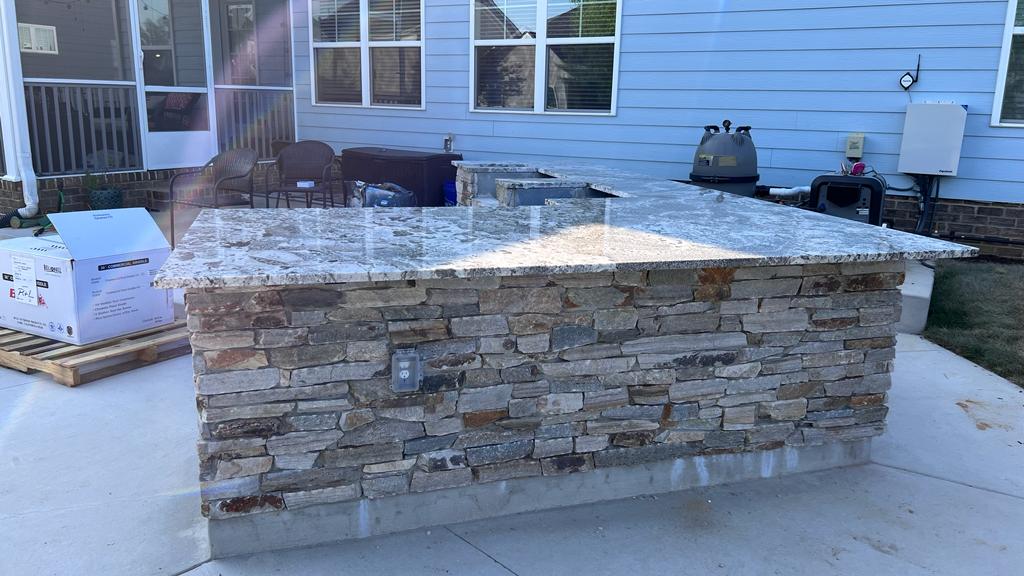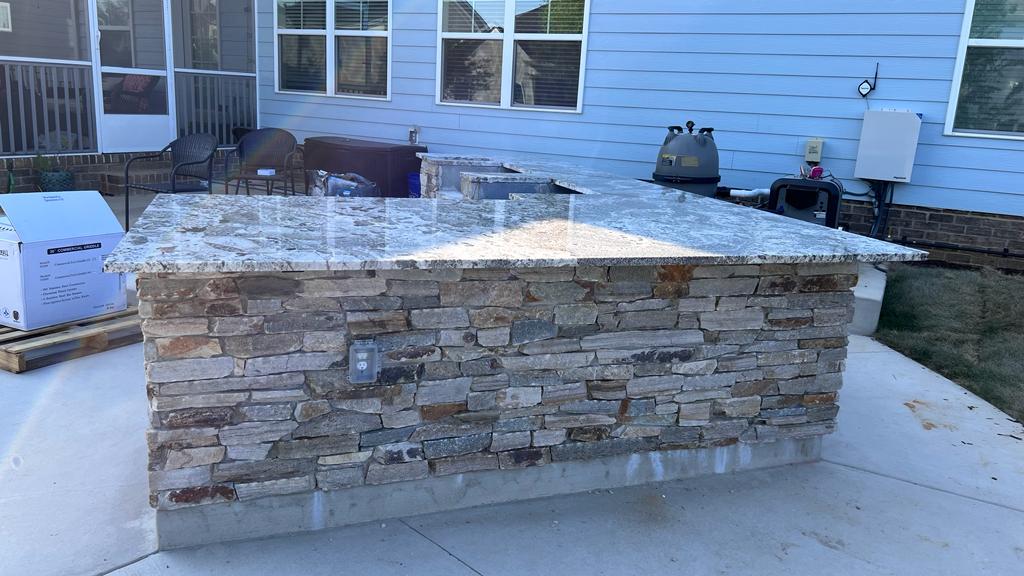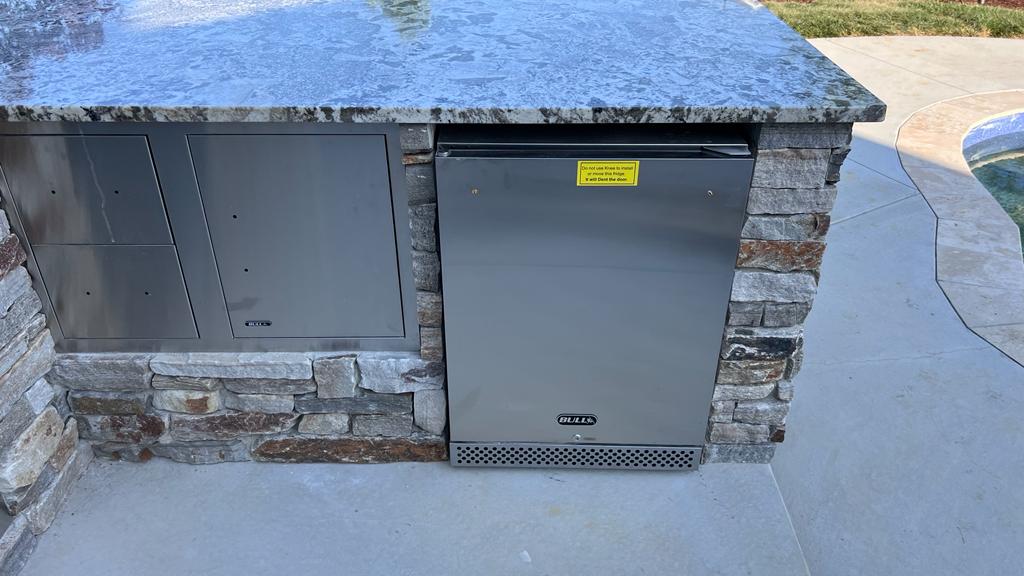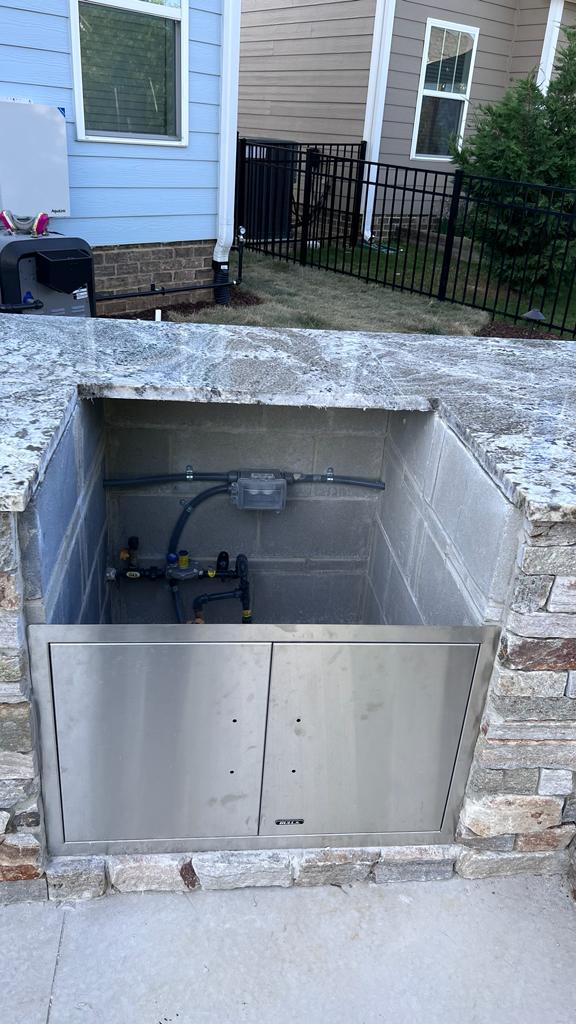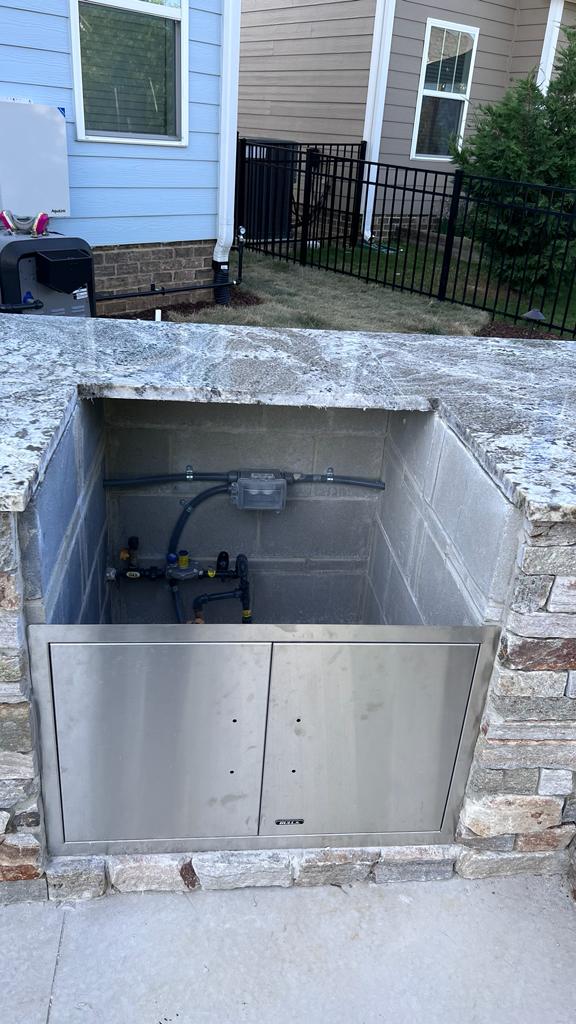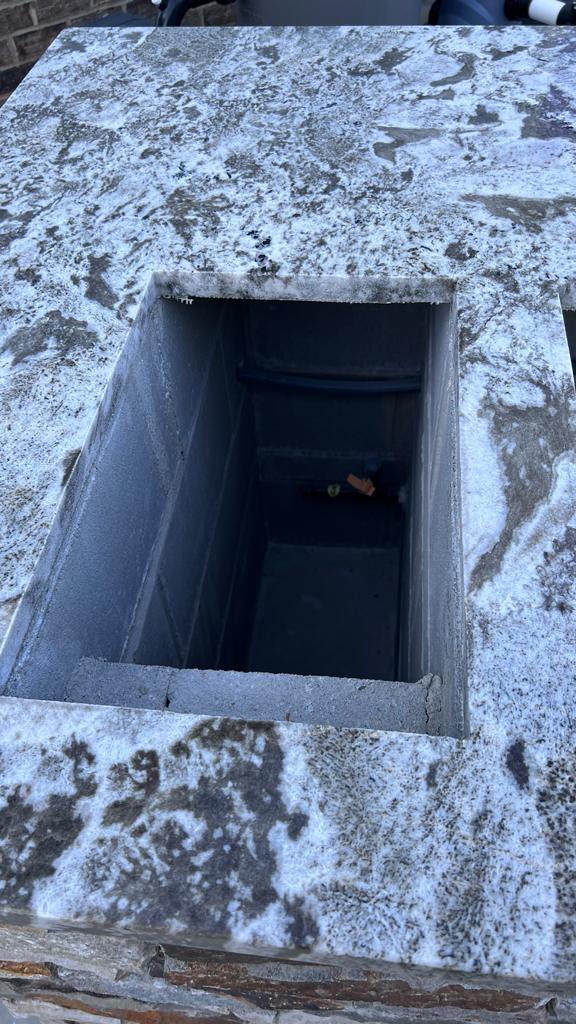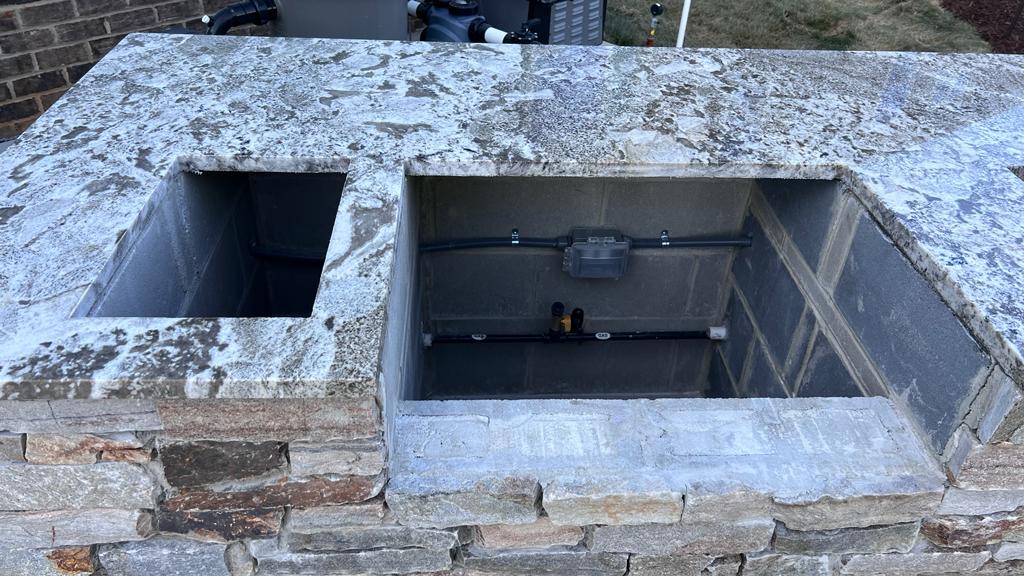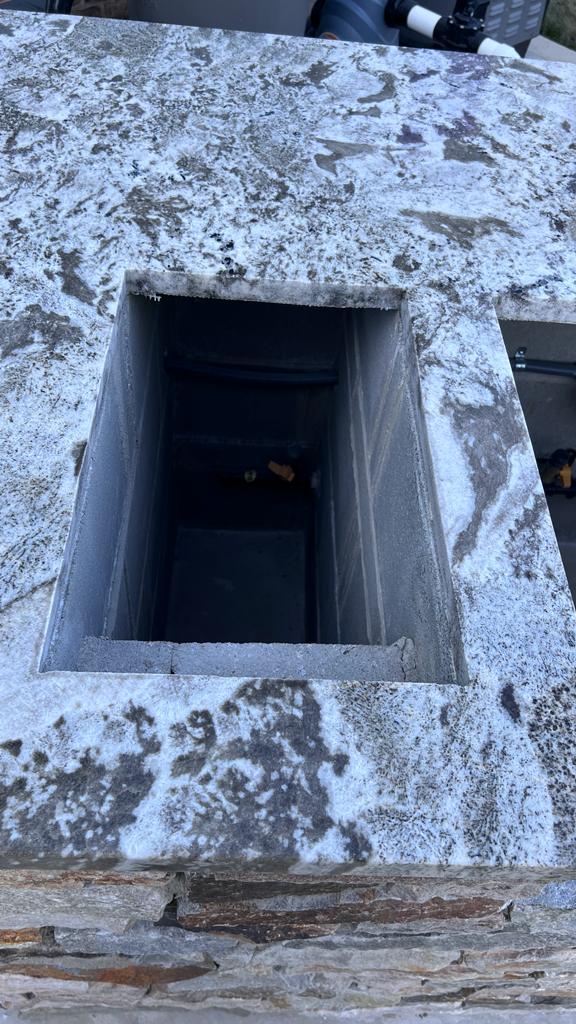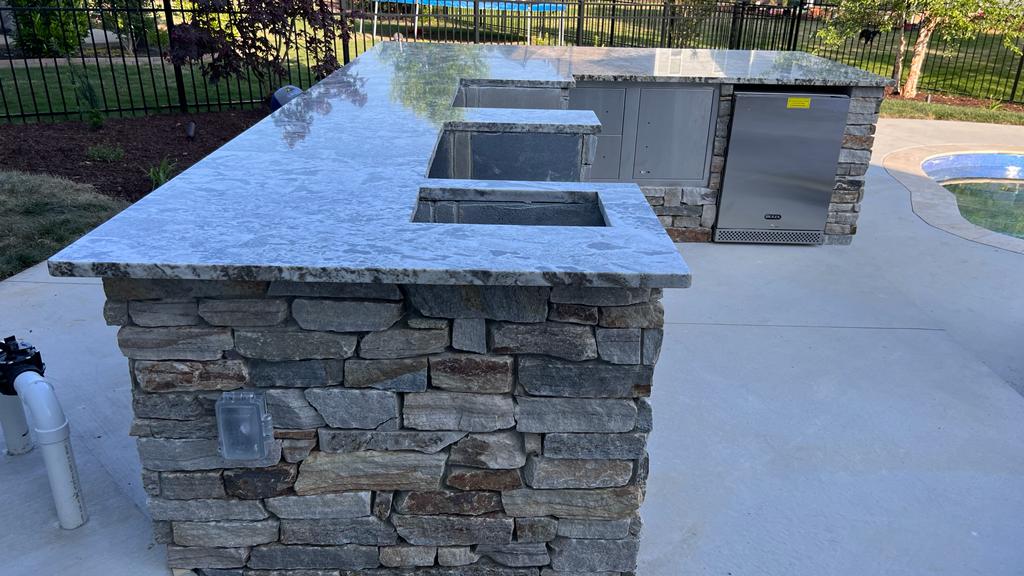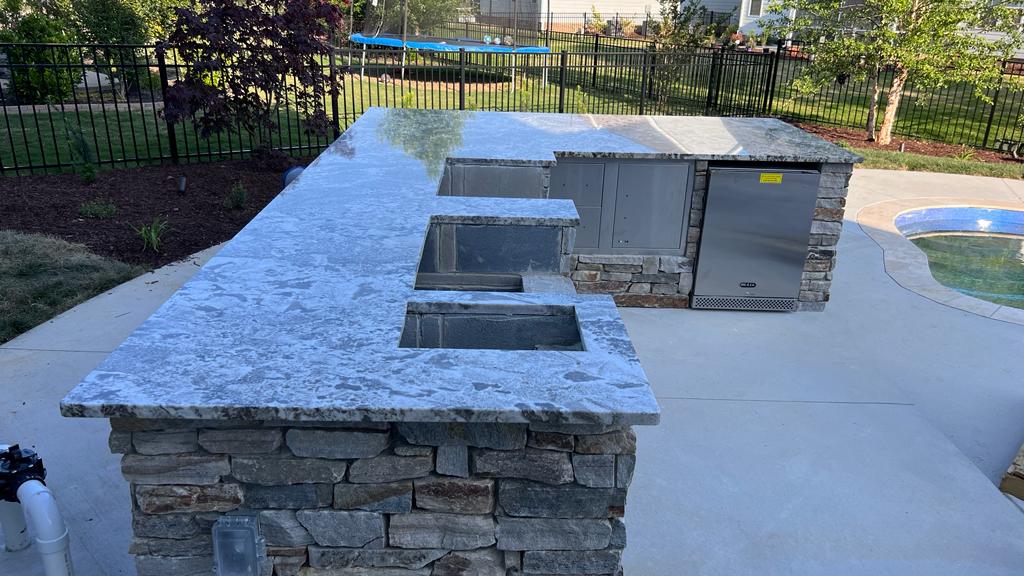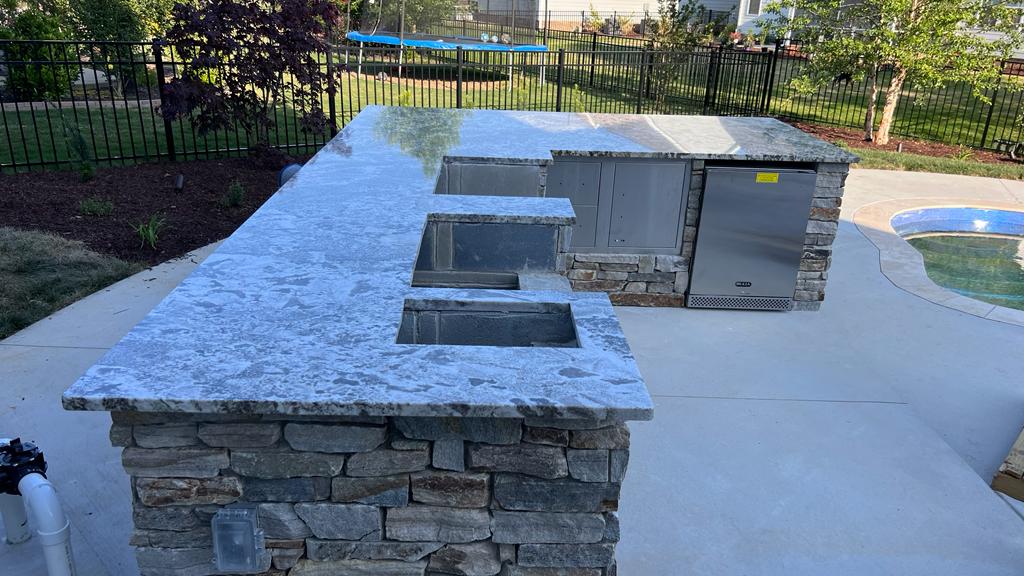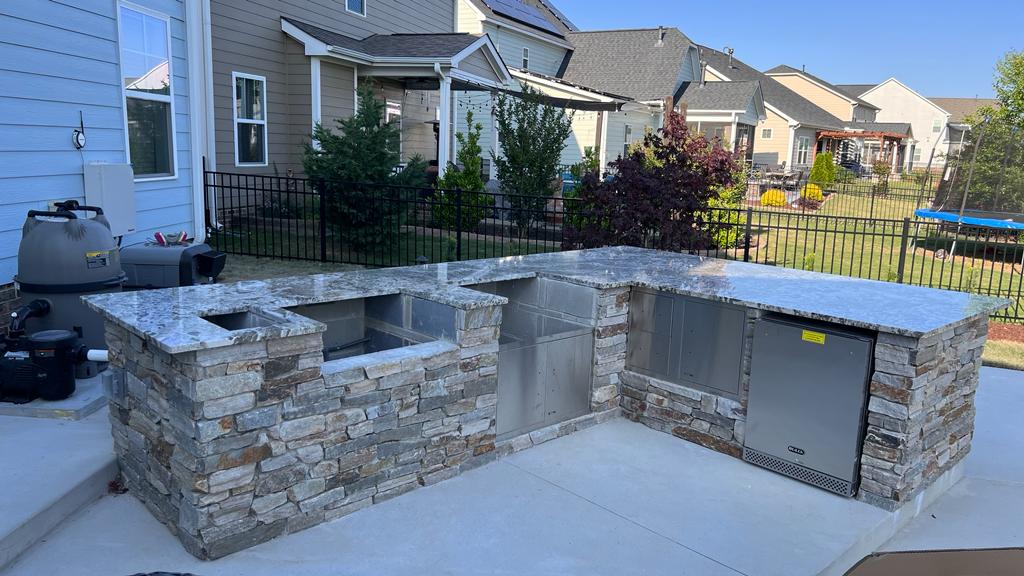Holly Springs New Outdoor Kitchen - BuildRite LLC Remodeling and Construction
- Home
- Holly Springs New Outdoor Kitchen
Holly Springs New Outdoor Kitchen Exploring the Cinder Block Option Pros of a Cinder Block Outdoor Kitchen Durability Non-Combustible Safety Built for Northern Climates The Bottom Line Project Gallery
When planning an outdoor kitchen, homeowners quickly realize just how many options are available—from prefab units to ready-to-finish frame kits. For those seeking a more custom, hands-on solution, a cinder block outdoor kitchen can be an excellent choice. Before starting, it’s important to understand the benefits and considerations of building with cinder blocks.
Cinder block construction is exceptionally strong and long-lasting. Concrete homes in hurricane-prone areas like Florida are proof of its resilience. Unlike wood, which can rot, warp, or swell, or metal, which may rust, concrete is resistant to these issues—making it ideal for virtually any climate.
Wood-framed outdoor kitchens can pose fire risks when built near grills or open flames. Cinder blocks, on the other hand, are non-combustible, offering peace of mind and a safer cooking environment.
Concrete performs especially well in colder climates where hail, ice, snow, and freeze/thaw cycles cause major problems for wood or metal structures. While other materials expand, contract, and eventually crack, cinder block construction remains strong, stable, and weather-resistant year-round.
A cinder block outdoor kitchen is a durable, fire-safe, and climate-resistant option that provides long-term value. With the right design and professional craftsmanship, it can transform your backyard into a functional, stylish outdoor living space.

